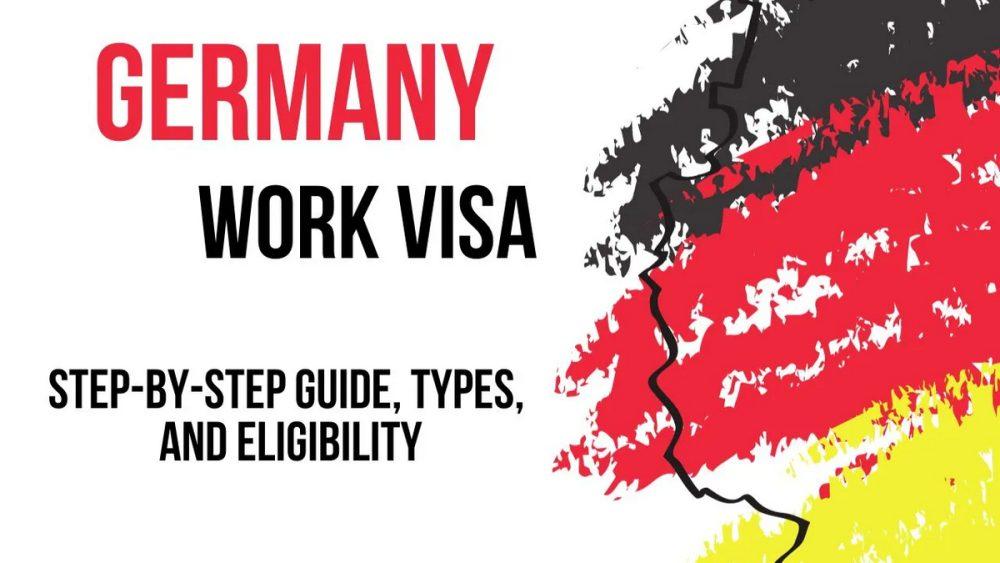Skills for Employment Investment training Programs. skills for Employment Investment Program. BASIS, through Skills for Employment Investment Program (SEIP) will to train up 23,000 over the contract period of 3 years. 5000, 9000 and 9000 trainees will be trained in the 1st, 2nd and 3rd year respectively. BASIS institute of Technology & Management (BITM) is planning to proposed twelve courses for new entrants and two courses for up skilling programs under this SEIP project
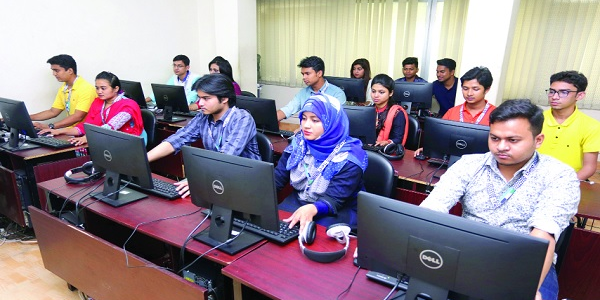
Skills for Employment Investment training Programms
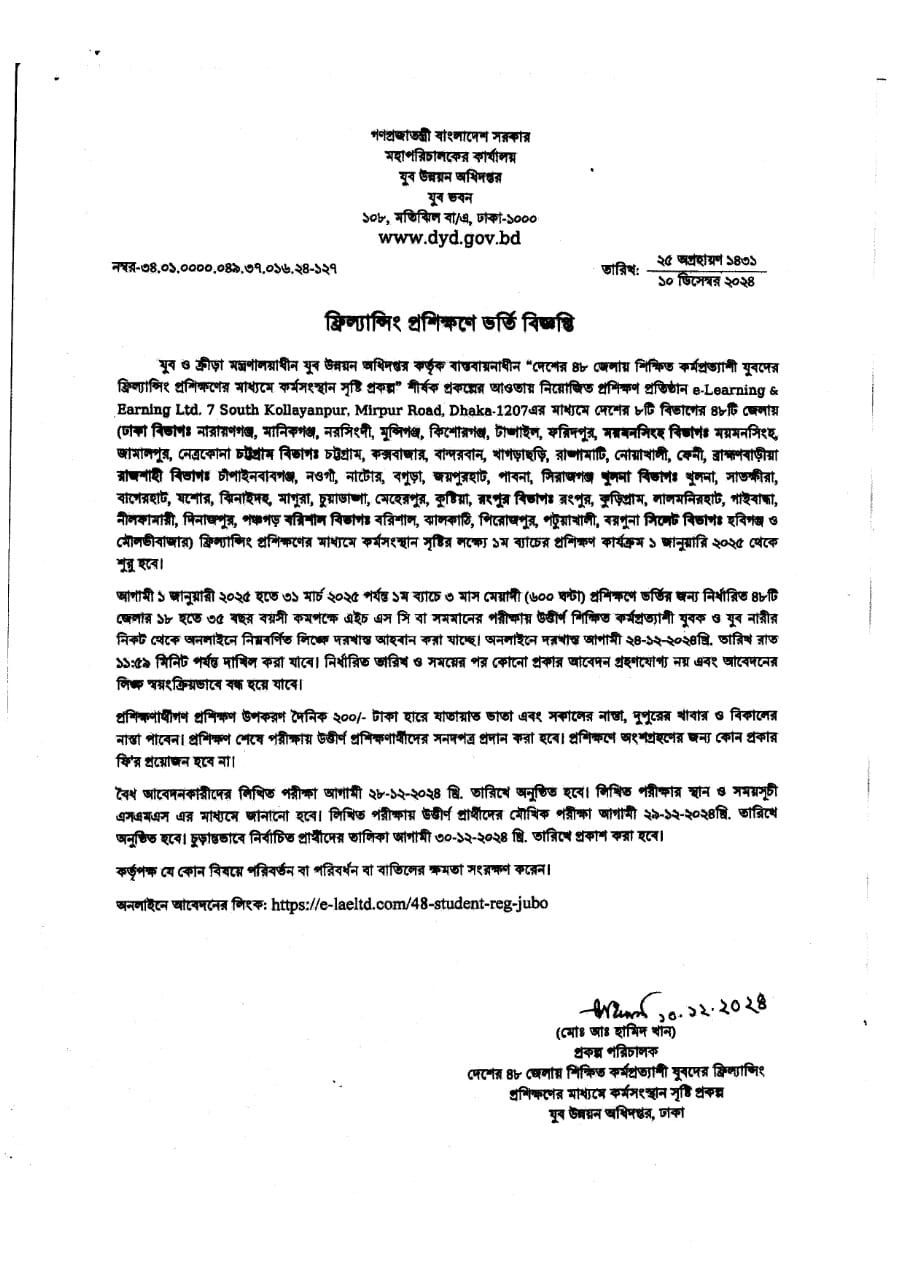
BASIS Student Forum
Eligible members of BASIS Student Forum will get preference to enroll in this training program under SEIP project.
আমেরিকান ডিভি লটারিতে ১৮-৪০ বছর বয়সীদের জন্য ২০২৪/২৫ এ বাংলাদেশ থেকে আবেদন শুরু হয়েছে! বিনামূল্যে আবেদনের লিঙ্কঃ
Skills Development Coordination and Monitoring Unit (SDCMU), Skills for Employment Investment Program (SEIP), Finance Division, Ministry of Finance, Government of Bangladesh is established with the objective of developing unskilled and semi-skilled labor force into productive and skilled labor in priority sectors and to support Government institutes, private companies, non-government organizations, industry skill councils and industry associations for achieving this objective.
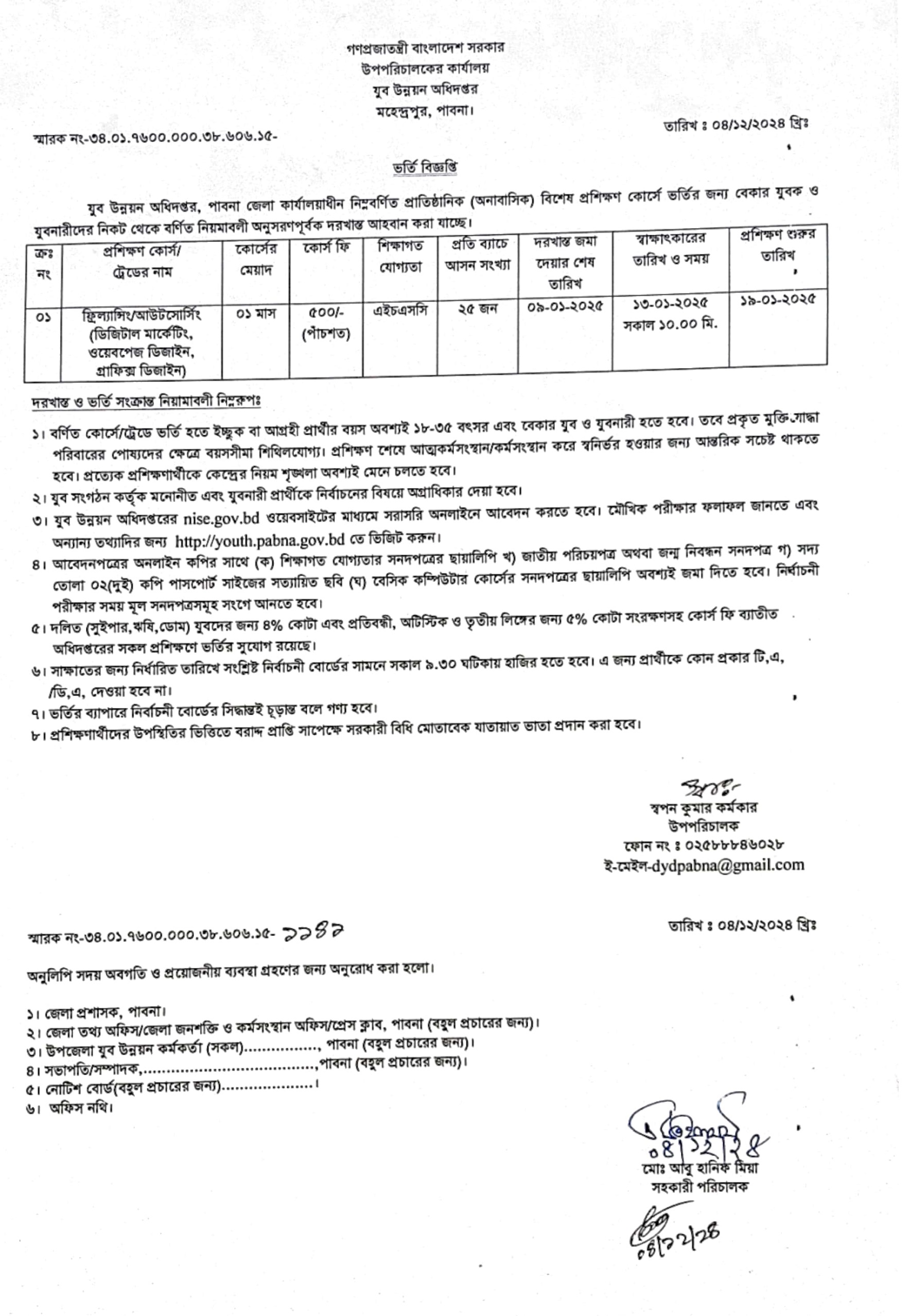
আরও পড়ুন
আমেরিকা ভিসা পাবার সবচেয়ে সহজ প্রক্রিয়া
কানাডা ভিসা প্রসেস খুব সহজেই ঘরে বসে
ইতালি ওয়ার্ক পারমিট ভিসা অল্প খরচে
দক্ষিন কোরিয়া ওয়ার্ক পারমিট ভিসা সুল্ভ মুল্ল্যে
SDCMU is utilizing the funds provided by the Asian Development Bank (ADB) under Loan 3131-BAN: Skills for Employment Investment Program (SEIP) to provide assistance towards the end of skilling 1.25 million youth by 2021 in the focus sectors. apply online
Skills Development Coordination
Skills Development Coordination and observation Unit (SDCMU). Moreover, Skills for Employment Investment Program (SEIP), Finance Division. In addition, the Ministry of Finance, Government of Bangladesh is established with the target of developing unskilled and semi-skilled labor pool into productive and adept labor in priority sectors and to support Government Institutes.
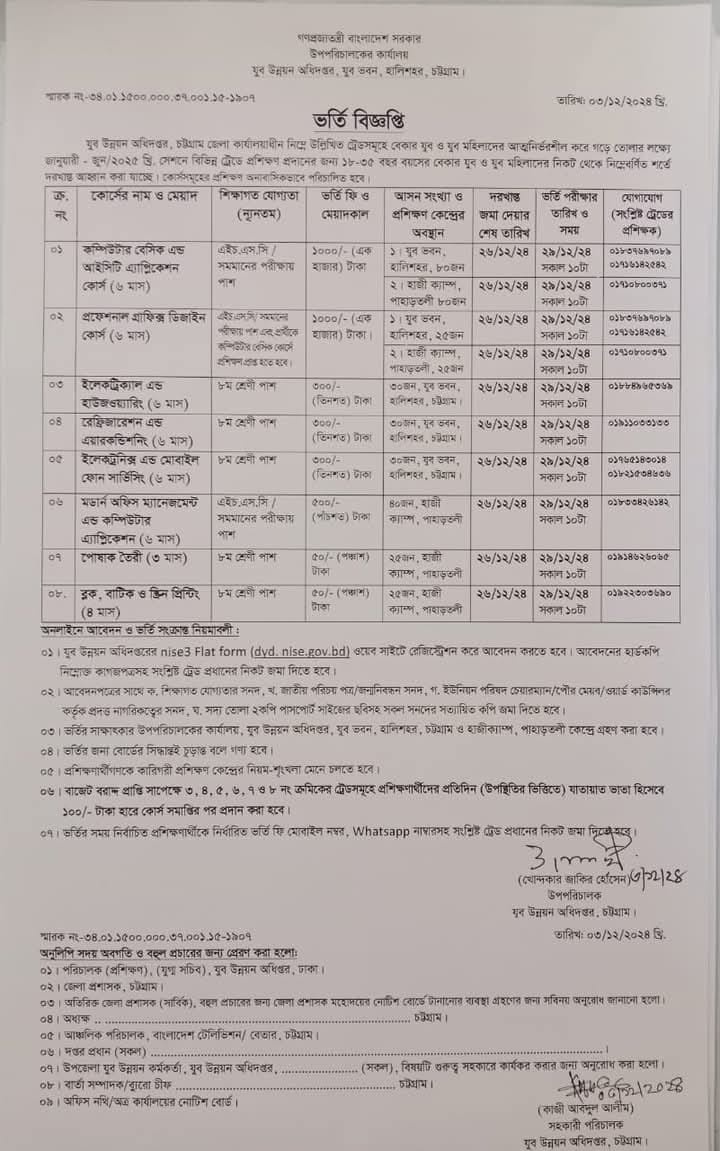
Bangladeshi labour force
SEIP will support six high growth priority sectors in the first tranche and around 15 priority sectors (including Agro-processing and Tourism) during the entire SEIP period. These sectors are inevitable to make Bangladeshi exports competitive as well as to enhance the productivity of Bangladeshi labour force and earnings in domestic and overseas markets. The SEIP will mobilize resources to support public and private training providers to meet emerging labour market needs. Initial six priority sectors are:
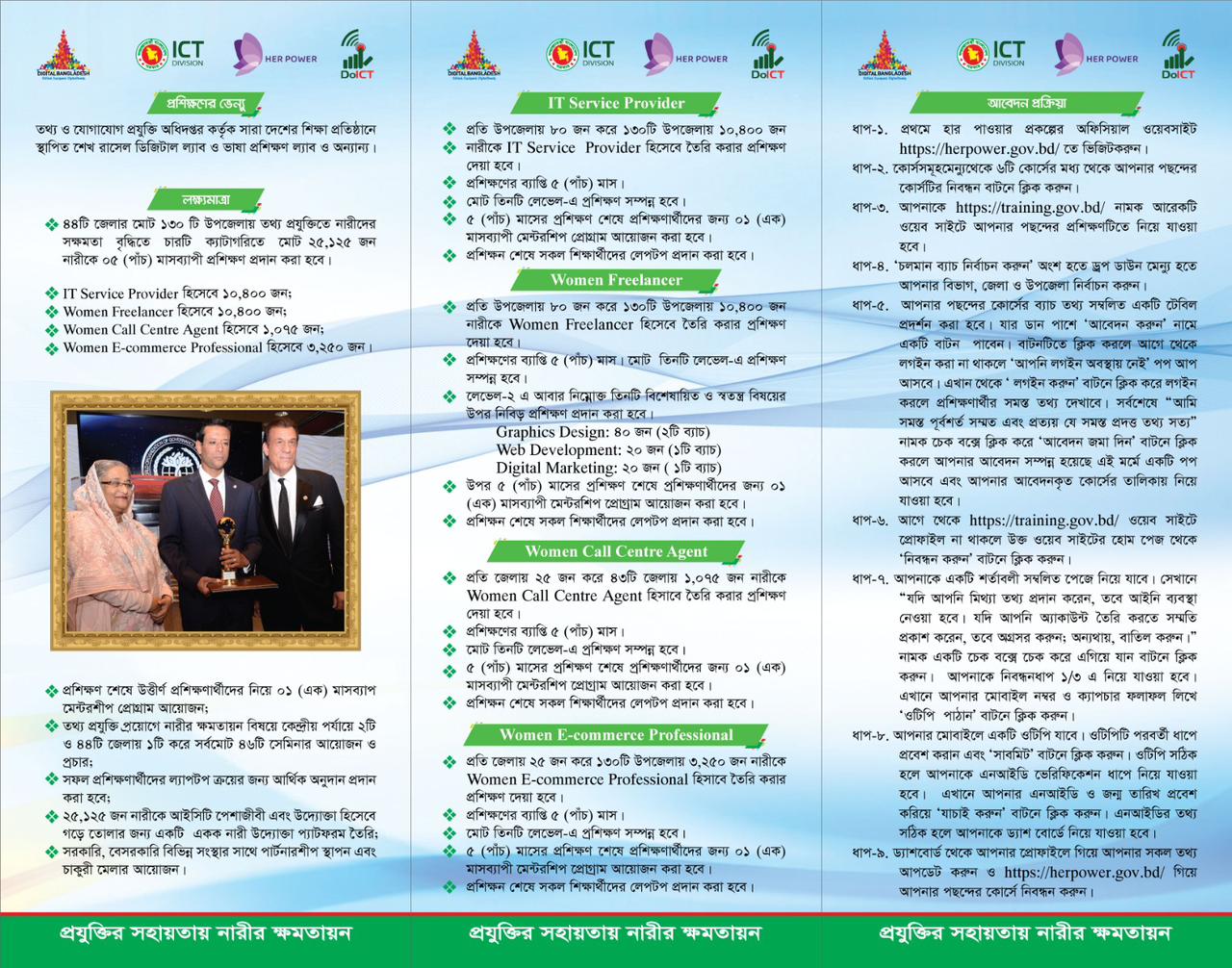
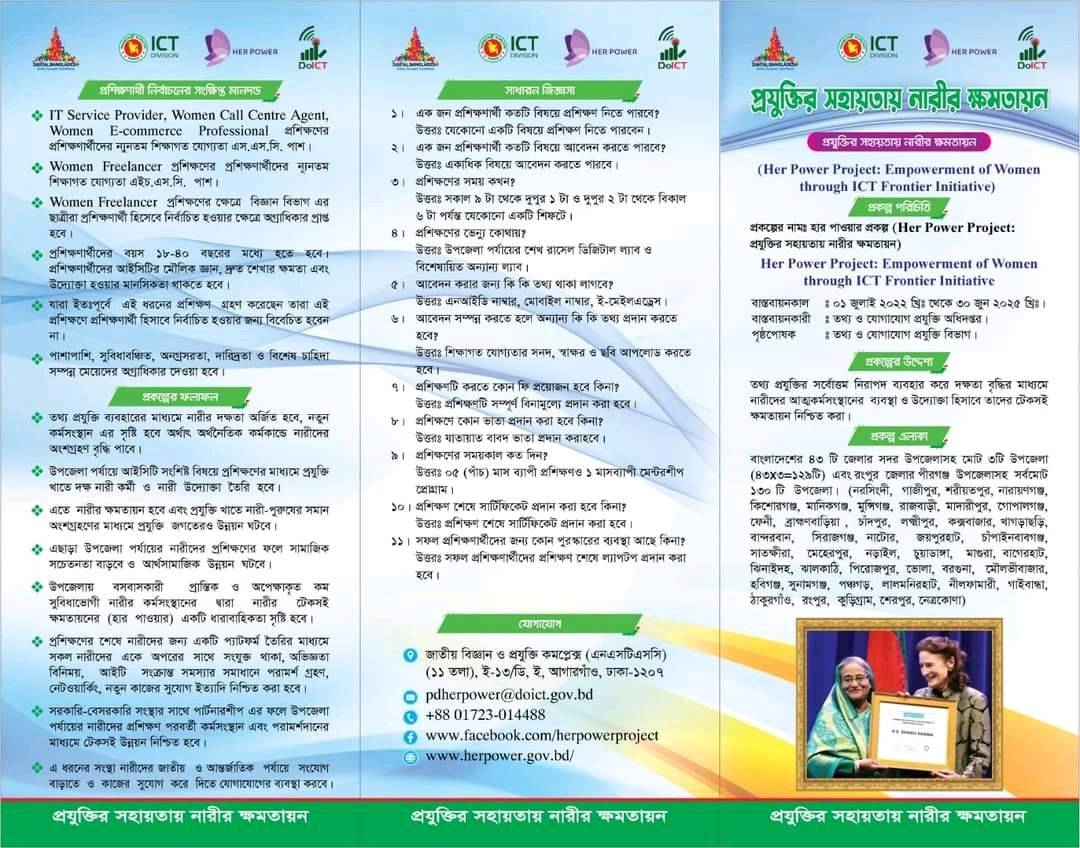
(a) Readymade Garments and textile
(b) Construction
(c) Information Technology
(d) Light Engineering/Manufacturing,
(e) Leather and Footwear and
(f) Ship Building.
Skills for Employment Investment Training (SEIT) programs are designed to equip individuals with the skills and knowledge necessary for meaningful employment. These programs typically focus on developing both technical and soft skills to meet the demands of various industries. Below are the key skills and elements often included in SEIT programs:
How To Apply
DV Lottery Apply Now
কানাডায় চাকরির জন্য বাংলাদেশ থেকে আবেদন শুরু হয়েছে!! আবেদনের লিঙ্ক পেতে নিচের লিঙ্কে ক্লিক করুন
1. Industry-Specific Technical Skills
- IT and Digital Skills: Training in coding, software development, cybersecurity, data analysis, cloud computing, and other tech-based fields.
- Trades and Vocational Skills: Skills in construction, plumbing, welding, electrical work, and automotive repair.
- Healthcare Skills: Certification for roles such as nursing assistants, medical coders, or pharmacy technicians.
- Advanced Manufacturing: CNC machining, robotics, and automation.
- Green Energy Skills: Solar panel installation, wind turbine maintenance, and energy efficiency practices.
2. Soft Skills Development
- Communication Skills: Verbal and written communication for effective interaction in the workplace.
- Teamwork: Collaboration and interpersonal skills to work in diverse teams.
- Problem-Solving: Critical thinking and decision-making skills for workplace challenges.
- Time Management: Prioritization and organizational skills to manage tasks effectively.
3. Workplace Readiness Skills
- Resume Writing and Interview Prep: Creating strong resumes and excelling in interviews.
- Professional Etiquette: Workplace behavior, attire, and ethics.
- Adaptability: Coping with change and learning new tools or systems quickly.
4. Digital Literacy
- Proficiency with basic computer tools (e.g., Microsoft Office, Google Workspace).
- Navigating online platforms and remote work tools (e.g., Zoom, Slack, Teams).
5. Entrepreneurial Skills
- Business planning, financial literacy, marketing, and small business management for individuals interested in self-employment.
6. Language and Cultural Competence
- Language training for non-native speakers (e.g., English as a Second Language).
- Cultural awareness and diversity training for workplaces with international or multicultural teams.
7. Certifications and Licensing
- Obtaining relevant certifications like OSHA, IT certifications (e.g., CompTIA, Cisco), or project management (e.g., PMP).
- Meeting licensing requirements for specific professions.
8. Career Guidance and Networking
- Mentorship programs, career counseling, and networking events to connect participants with employers.
9. Hands-On Training
- Internships, apprenticeships, and practical simulations to gain real-world experience.
10. Specialized Programs
- Targeted training for specific populations, such as women, veterans, persons with disabilities, or marginalized groups.
SEIT programs are often tailored to regional or industry-specific demands, ensuring that participants gain relevant and in-demand skills for their local job markets.
Highlights
- All the offered training programs are totally free.
- The minimum qualification to get enrolled in this program is Graduation or Diploma in Engineering depending on the training course.
- One trainee can do only one training program under this project.
- Each trainee will be given BDT 3,120 per month as a training allowance. But to get this benefit, the trainee must ensure attendance at least 80% of total classes conducted and abide by all the rules and regulation of the BITM
- The certainty of Job Placement.
These training programs will be implemented in BITM, Dhaka branch in the 1st year and gradually they will implement the programs in the regional centers located at Sylhet, Khulna, Rajshahi, Rangpur, Chittagong and Barisal.
Interested participants are being requested to do online registration. There will be a selection procedure to get chance in these exclusive training programs.
Skills for Employment Investment Program (SEIP)
- Skills Development Coordination and Monitoring Unit (SDCMU), Skills for Employment Investment Program (SEIP), Finance Division, Ministry of Finance, Government of Bangladesh is established with the objective of developing unskilled and semi-skilled labor force into productive and skilled labor in priority sectors and to support Government institutes, private companies, non-government organizations, industry skill councils and industry associations for achieving this objective. SDCMU is utilizing the funds provided by the Asian Development Bank (ADB) under Loan 3131-BAN: Skills for Employment Investment Program (SEIP) to provide assistance towards the end of skilling 1.25 million youth by 2021 in the focus sectors.
Skills for Employment Investment training Programs
Objective(s) of the SEIP Program
-
- Improve program for skilling new entrants and up-skilling existing workforce to enhance productivity and growth of priority industry sectors;
- Impart skills training linked to gainful employment or self-employment through PKSF partners and their livelihood programs as well as through Bangladesh Bank Small and Medium Enterprise (SME) Department linked to jobs in SMEs;
- Develop a network of training providers that are endorsed by industry for providing excellence of training to meet the skills needs of employers;
- Establish and implement a strategy to address the special needs of groups specified in the NSDP and ensure their participation in SEIP programs;
- Implement a vocational trainer development program for trainers and assessors and a management leadership program for training provider management reflecting NSDP requirements;
- Strengthen capacity of BTEB in approving training providers registration process, course accreditation and monitoring quality assurance and implementation procedures of training providers;
- Support the training providers for capacity development to ensure quality training delivery mechanism;
- Establish and institutionalize a credible recognition of prior learning (RPL) system;
- Support the NSDC and key government ministries to strengthen institutional arrangements and coordination to enable the TVET system to meet policy objectives within a coherent skills development framework; and
- Support the establishment and ope rationalization of a National Human Resources Development Fund (NHRDF).
Employment investment program
skills for employment investment program,skill for employment investment program,skills for employment investment program (seip),seip free training,seip free training 2022,seip training,free it training in bangladesh,seip training circular 2021,bitm training course 2022,skills for employment investment program jobs,skill for employment investment program bd,pencilbox free training,free training course on bd govt,seip training circular 2023 to 2024 .
Skills for Employment refer to a combination of technical, transferable, and soft skills that prepare individuals for the workforce and enable them to excel in their careers. These skills can be categorized into several key areas:
1. Foundational Skills
- Basic Literacy and Numeracy: Reading, writing, and mathematical skills for everyday workplace tasks.
- Digital Literacy: Proficiency in using computers, smartphones, and other digital tools, including software like Microsoft Office, Google Workspace, and collaboration platforms like Zoom or Teams.
- Time Management: Planning and prioritizing tasks to meet deadlines efficiently.
2. Technical or Job-Specific Skills
- Industry-relevant technical expertise, such as:
- Coding and Programming for IT roles.
- Equipment Operation for manufacturing or trades.
- Clinical Skills for healthcare.
- Certifications like project management (e.g., PMP) or technical qualifications (e.g., AWS, AutoCAD).
3. Transferable Skills
- Problem-Solving: Identifying challenges and implementing effective solutions.
- Critical Thinking: Analyzing situations logically and making informed decisions.
- Adaptability: Adjusting to new technologies, roles, or work environments.
4. Communication Skills
- Verbal Communication: Expressing ideas clearly and effectively in conversations or presentations.
- Written Communication: Crafting concise and professional emails, reports, or documents.
- Active Listening: Paying attention to and understanding others’ perspectives.
5. Teamwork and Collaboration
- Working effectively in diverse teams.
- Understanding roles and responsibilities within group projects.
- Conflict resolution and fostering positive workplace relationships.
6. Professionalism
- Workplace Etiquette: Understanding acceptable behavior, dress codes, and communication standards.
- Ethics: Demonstrating integrity, honesty, and responsibility in professional settings.
- Punctuality: Being reliable and consistent in meeting deadlines and commitments.
7. Leadership and Initiative
- Leadership Skills: Inspiring and motivating others, delegating tasks, and guiding teams.
- Proactive Thinking: Anticipating challenges and addressing them before they become problems.
- Decision-Making: Evaluating options and making effective choices.
8. Emotional Intelligence
- Self-Awareness: Understanding and managing your emotions.
- Empathy: Recognizing and respecting others’ feelings and perspectives.
- Stress Management: Maintaining composure under pressure.
9. Networking and Career Building
- Job Search Skills: Writing resumes, preparing for interviews, and using job boards effectively.
- Professional Networking: Building and maintaining relationships within your industry.
- Personal Branding: Creating a positive and professional online presence, such as on LinkedIn.
10. Lifelong Learning
- Staying updated on industry trends and advancements.
- Pursuing additional training or certifications.
- Embracing feedback and using it to grow professionally.
These skills collectively prepare individuals for successful employment, whether they’re entering the job market, advancing in their careers, or transitioning to new industries.
সকল ধরনের চাকরির খবর এবং যে কোন ধরনের খবর জানতে চোখ রাখুন আমাদের অফিসিয়াল সাইটে ।
 Job News BD Job News Website of Bangladesh
Job News BD Job News Website of Bangladesh









